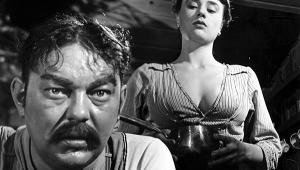Blu-ray Review: The Beaver

Clinical depression isn’t exactly the stuff of Hollywood dreams. And in 2011, neither is Mel Gibson. His real-life drunken tirades have cost him dearly — and they make him an unlikely candidate for the necessarily sympathetic movie role of a severely depressed man who takes to talking through a beaver hand-puppet just to survive.
Still, director Jodie Foster likes a big challenge, and she found one in The Beaver. It’s hard to imagine such essentially edgy material succeeding completely in a mainstream movie like this; a low-budget film with unknown actors probably would’ve had a much better shot. Inevitably, that disconnect plays out in the form of wild mood-swings as the movie bounces back and forth between tragedy and light comedy without ever really finding its footing.
Surprisingly, it’s none other than Gibson himself who saves the day. His spot-on personification of the Cockney-voiced Beaver never wavers, even as he plays dual roles in a number of fast-paced scenes. Foster is merely adequate in the role of the long-suffering wife, and a subplot involving the almost equally depressed teenage son (Anton Yelchin) and the beautiful-but-troubled cheerleader (Jennifer Lawrence) who comes to appreciate him barely rings true. But it’s impossible to take your eyes off that snarky puppet, even when the film itself doesn’t quite add up.
The 2.40:1 picture is lush and beautiful on Blu-ray, with exemplary detail and colors that are both vivid and realistic. Audio quality is solid throughout, and it serves to spotlight some daring creative choices. The surround channels in the DTS-HD Master Audio 5.1 mix are used mainly for intermittent narration by the Beaver, a weird effect that underlines the essential “otherness” of the character. An oddly upbeat score is tempered by the prominent inclusion of Radiohead’s “Exit Music (For a Film)” from the classic OK Computer, though this may be too obvious a choice for a movie about alienation and depression.
Extras include a 12-minute documentary (mostly about praising director Foster), one brief deleted scene, and one briefly extended scene. Slim pickings there, but stay tuned: Foster’s fierce intelligence is on display in her thoughtful and articulate commentary. Unlike so many long-winded commentaries found elsewhere, Foster’s talk illuminates the reasoning behind her many small creative choices and actually enhances appreciation of the film.
- Log in or register to post comments






























































